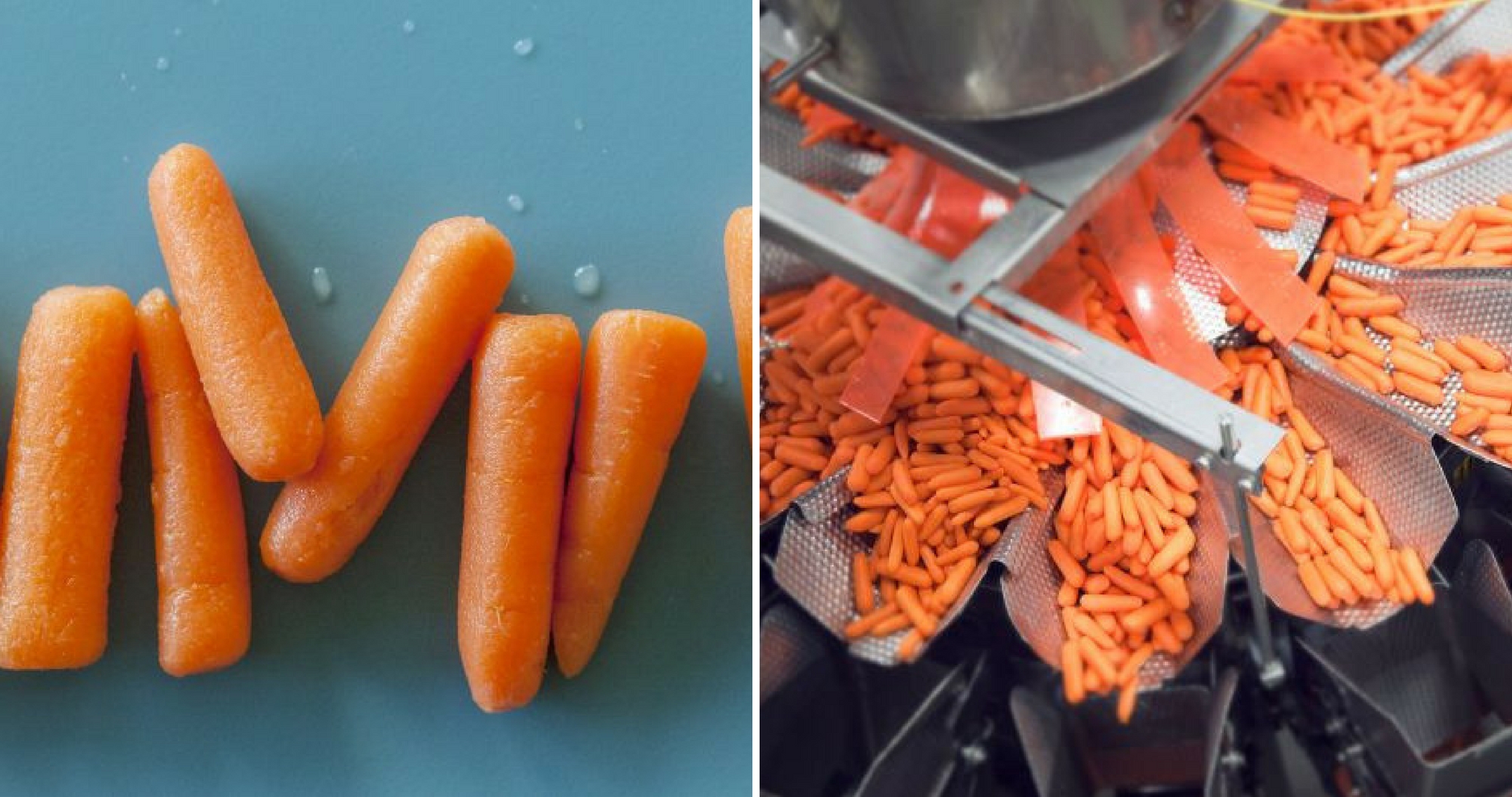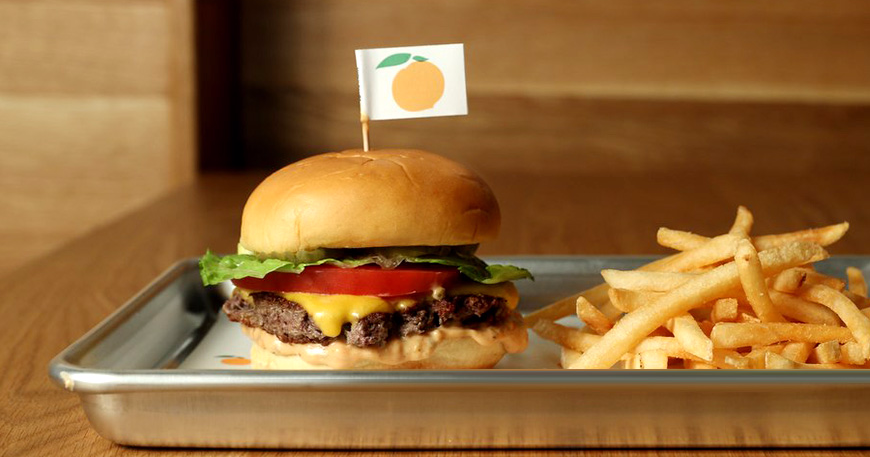When you look at a bag of baby carrots you probably just see smaller, more round, carrots, but that's not all that baby carrots are. These little orange sticks have actually completely changed the produce industry and may have saved carrot farming. Even with all that they still remain a controversial side dish because of claims they cause cancer.
But what's the truth? Well we'll serve up some straight facts and you can decide.
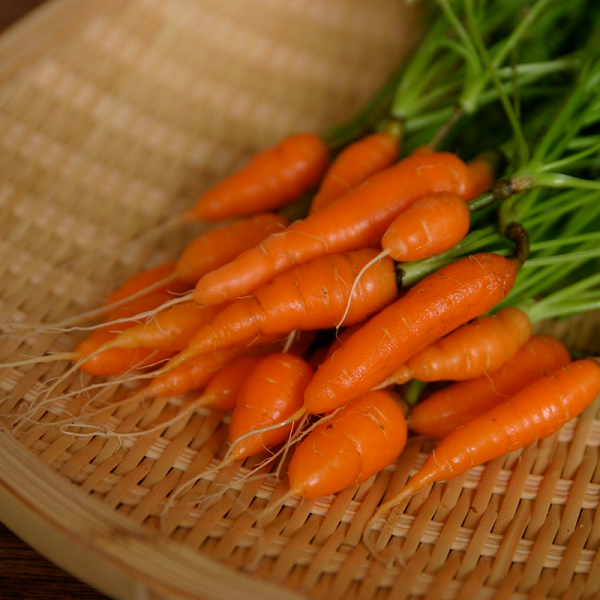
First some background: There are actually two kinds of "baby carrots" and one of them isn't a baby carrot at all. Baby carrots are carrots that are pulled from the ground before they reach maturity. They are generally sweeter and softer than a full-grown carrot. "Baby-cut Carrots" are thing most of us think of when we say baby carrots. They are full carrots that are sliced up to be bite-sized.
Birth Of Baby Carrots
Carrot farmers used to have a pretty raw deal. Stores only wanted carrots of a certain shape and color, which meant tons of carrots were thrown away every year. A huge percentage of a farmer's crop was unusable for sale or juicing so it just went in the garbage. Until one man had an idea.
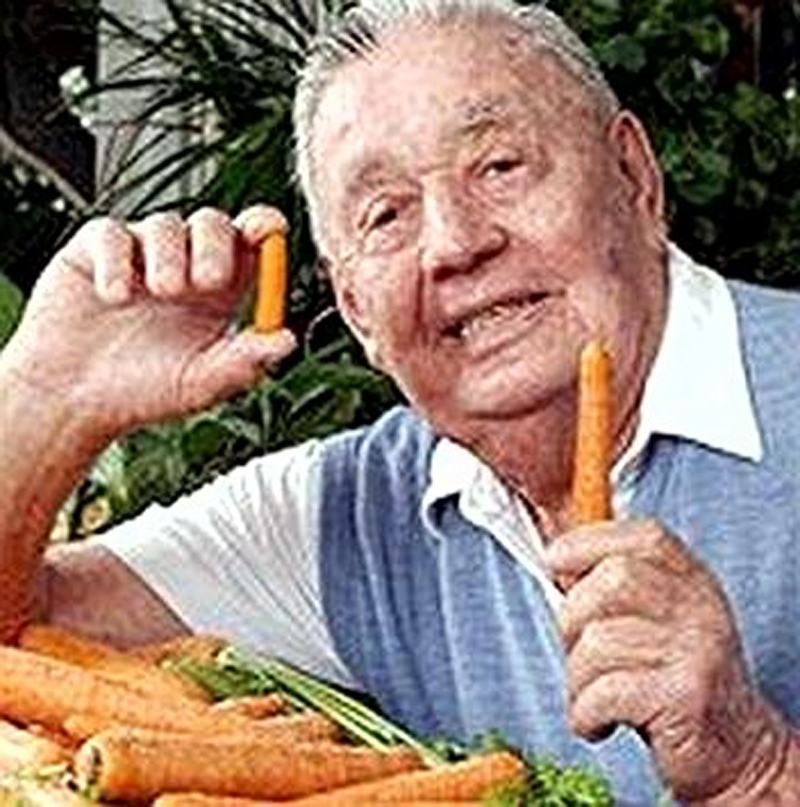
In 1986 Mike Yurosek of California started collected his "imperfect" carrots. He ran them through an industrial green bean cutter which sliced the carrots in two. He then placed those in a potato peeler. The result was very close to what we see in stores now and he called them "Bunny-Luv".
Bunny Boom
The baby-cut carrot was designed to help minimize waste for farmers, but American consumers took to it in a big way. The smaller carrots made it easy to include in lunches for kids, take for snacks to work or on day trips, and easier to store. Carrots packaged with dip became one of the most popular snacks in the country.
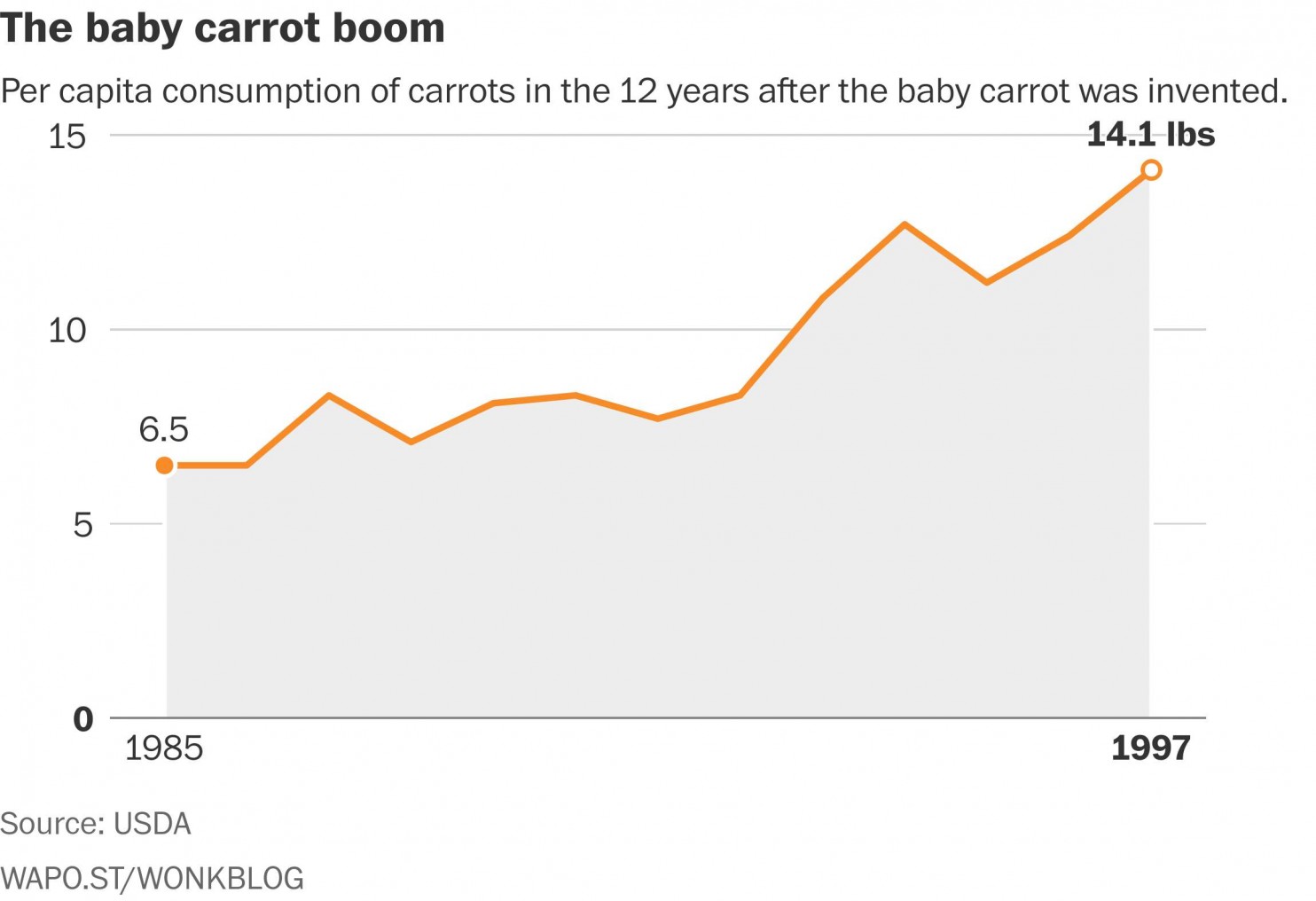
America experienced a serious surge in carrot consumption with the invention of the baby-cut carrot. Between 1970 and 1986, Americans ate 6 pounds of carrots per year. Between 1987 and 2002 they averaged 11 pounds per person per year.
Despite the popularity, a serious controversy has emerged surrounding the small snacks, and many people have sworn them off for good.
Find out why, and if the warnings should be believed on the next page!
Health Scare
Like we said, baby-cut carrots are cut and then peeled into their specific shape. That leaves their inner "flesh" exposed to the elements, meaning discoloration or rotting will occur faster. To prevent this, producers treat baby-cut carrots. This is where the controversy begins.
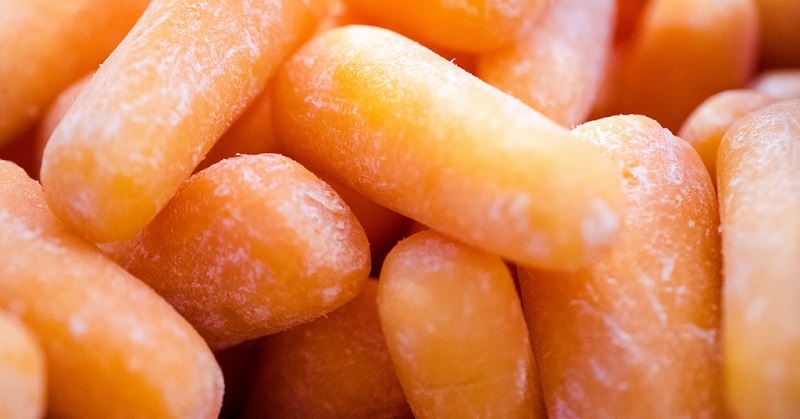
In 2008 online reports explaining the "white blush" on baby carrots began circulating. These reports claimed that the whiteness was actually chlorine coming to the surface of the baby carrots. These carrots, the report claimed, were large carrots that were whittled away and then soaked in chlorine.
Just The Facts Ma'am
Most of that is actually wrong.
Baby-cut carrots are prone to a whitening effect that you've probably noticed. This isn't chlorine, it's actually just the outer flesh drying out. Since the carrots are cut, their exposed skin is more sensitive to exposure to air, making the drying out process more dramatic.
Many fruits and vegetables have a similar reaction. We've all seen apples that start to go brown when exposed to air.
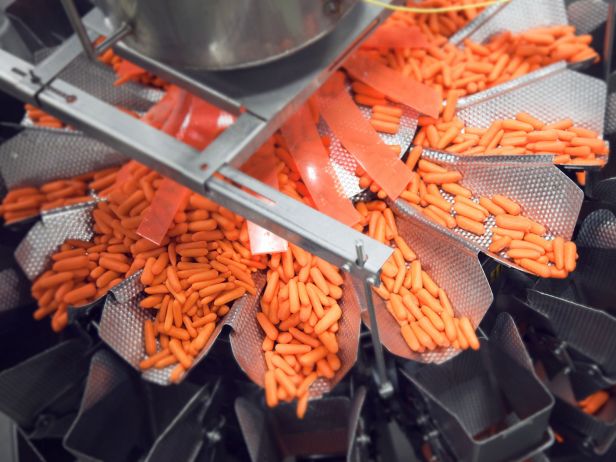
Now it is true that baby-cut carrots are washed with chlorine, it's actually a common practice used to clean bacteria off of produce. Almost all pre-cut produce is washed in chlorine and then rinsed in water until the chlorine is removed, same goes for pre-packaged salads.
The use of chlorine is monitored and accepted by the FDA, and other regulatory bodies in other countries.
If you don't like the idea of eating chlorine you can try to purchase organic carrots, however even some of these are treated with chlorine. A full-sized carrot would be your best bet to avoid the practice.
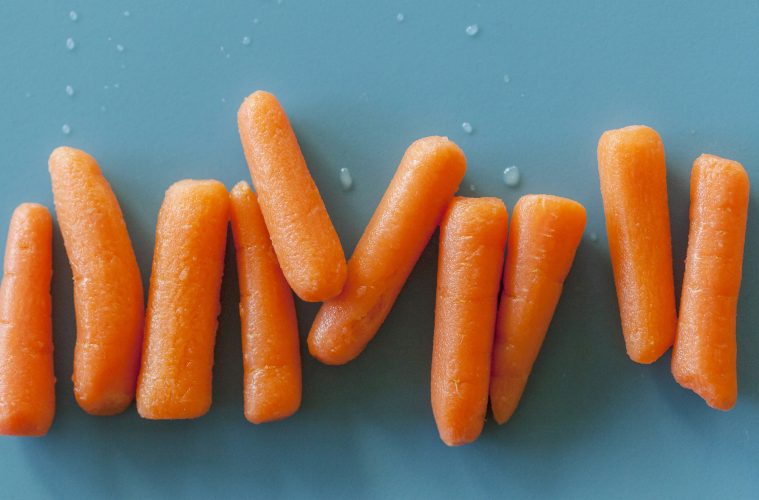
Carrots have lots of nutrients and have been known to be good for eyes, skin and bones. They also have a naturally high sugar content which makes it a popular snack for kids, and a great alternative to junk food. Use this information to make the right choice when decided if you want to eat baby-cut carrots!
